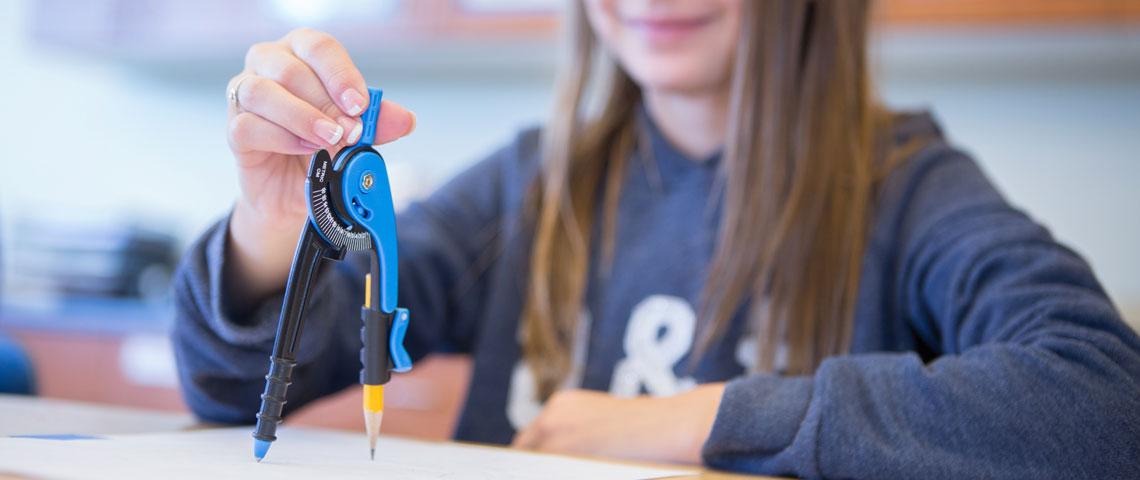HIGHLIGHTS
- National Council of Teachers of Mathematics Best Practices
- Collaborative, Active Learning
- Mastery, Not Memorization
- Pi Day Celebration
- Plinko Probability
Academics
Math
We believe there is no such thing as a “math gene,” rather that every child is capable of learning math and loving math. Instilling this belief into our youngest scholars is one of our math program’s primary aspirations. Rooted in National Council of Teachers of Mathematics (NCTM) standards, our elementary math efforts engage students in collaborative and active learning while providing each child with math confidence-building experiences. Through scaffolding, exploration, hands-on activities, games and technology, our emerging mathematicians progress from concrete learners to critical and abstract thinkers, building a repertoire of problem solving techniques along the way. The result is that our elementary scholars transition to middle school equipped with a confident and enthusiastic math mindset and the foundation for future math success.
Perhaps because of the instant gratification, social media, real-time reality that our students experience outside of school, our middle school mathematics program believes that developing patient problem solvers is essential. Cultivating a safe space to take risks and make mistakes is one of the many ways we empower our students to practice “being” mathematical rather than just “doing” mathematics. We want our students to feel excited by the discoveries they make through their authentic approaches to problem solving rather than feeling stifled by regurgitating traditionally prescribed, formulaic strategies.
Also rooted in NCTM best practices, our middle school mathematicians engage in challenging tasks in which they are given opportunities to apply previously-learned math concepts, to continue to develop their critical thinking and reasoning skills, to make connections between core concepts, and to learn how to effectively communicate their knowledge with classmates. Through practices of peer-to-peer teaching, error analysis, and dialog about different approaches to solving problems, our middle school mathematicians seek mastery, not memorization. The result is patient problem solvers equipped to tackle the toughest problems high school math (and life!) throws their way.

